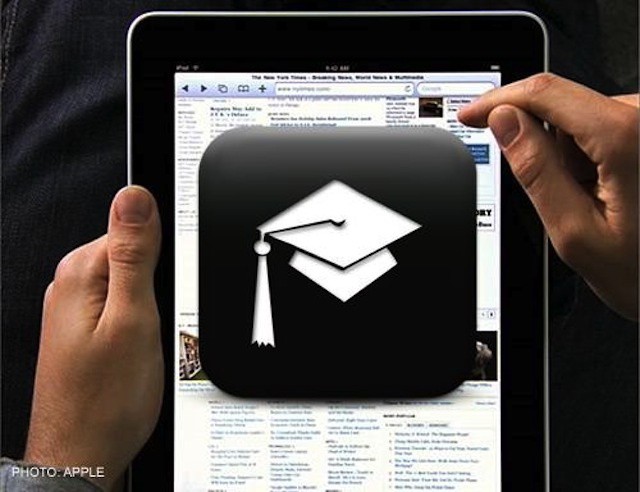Apple’s e-textbook initiative, which the company launched in January along with iBooks Author and a revamped iTunes U service is aimed at K-12 schools rather than higher education. Higher education has a different set of needs when it comes to textbooks, study, and reference materials. There are also big differences in device/platform selection between K-12 and the college market.
In fact, these differences are probably a big part of why Apple decided to focus the majority of its e-textbook (and, by extension its iPad in education) effort on the K-12 market. It’s a market that yields Apple more growth opportunities now and down the road.
The biggest difference between K-12 and higher education in this respect is the selection of devices and platforms. At the middle or high school level, students really aren’t involved in the decision about what technologies they’ll be using at school. A district’s school board, administration, and IT department are typically the deciders. That means each school or district has a uniform selection of technologies – be that iPads, MacBooks, desktop PCs, or anything else.
These technologies are typically purchased by the school or district, particularly in public schools where each student is expected to have equal access to materials and services (as opposed to private schools, which can stipulate required items for parents to purchase). The mass purchase also means that all devices have the same mobile management solutions, a core set of required apps, and potentially e-textbooks.
Textbook selection tends to follow a similar path, with choices being made at the district or state level that create a common selection regardless of individual teachers or classes. As with technology, the bulk purchase means that all students receive copies of the same books and teachers all work from the same syllabus.
At colleges and universities, things are very different. Although some courses may have specific requirements as far as technologies or materials, there is no universal systems that says that all students must have iPads or Kindles or anything else. This personal choice means students can pick their options – including the option to forego digital texts and rely on traditional textbooks.
This has lead to a lot of discussion about whether e-textbooks are really the best option for college students. As Caroline Vanderlip CEO of SharedBook Inc. notes in a recent column for Inside Higher Ed, the big priority for most college students is cost and e-textbooks along with open source textbooks don’t guarantee dramatically lower costs – or even slightly lower costs. Vanderlip makes a significant point in that the ultimate cost of textbooks (any books really) are tied more to the costs and processes of acquiring, editing, and formatting content more than they are to the costs physical printing and shipping.
Vanderlip also notes the college students have a range options when it comes to acquiring textbooks and reference materials that go well beyond anything at the K-12 level. There’s the traditional ability to purchased used textbooks, the more recent trend of textbook rental services, and the ability to shop around online for print and digital editions at lower costs than the college store as well as the option for sharing textbooks.
With significant differences like these, it’s obvious why Apple’s e-textbook and iPad in education efforts are better focused on the K-12 market – it’s a much easier system to disrupt while providing advantages to both students and educators. Of course, the big payoff for Apple won’t be just iPad sales to schools. After years of learning in Apple’s digital ecosystem, there’s a good chance that many of today’s middle and high school students will stick with the Apple platform when they go to college.


